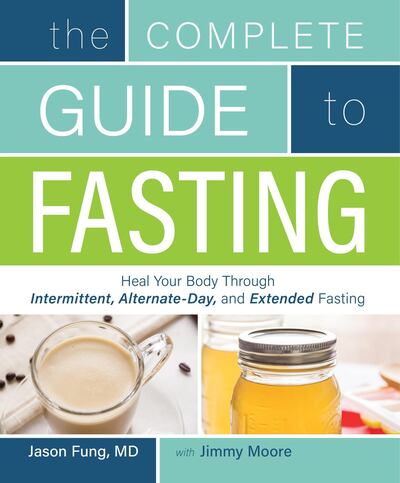Imagine spending half your life without food. Tough, right? For most people, getting through even one or two days without the physical and psychological comfort of food is unimaginable. However, a small but growing group of dieters around the world are committing to a lifestyle long term that entails just that. It's called alternate-day fasting (ADF) and, as the name suggests, it entails not eating every other day.
Each day without, or with very little, food is followed by a day of eating normally (but not indulging indiscriminately). It's a more extreme version of intermittent fasting, in which the most widely adopted method – and, arguably, the more sustainable one as well – is to fast for 16 to 18 hours followed by a six to eight-hour window for eating. Most followers of the ADF diet either completely forego food or, more commonly, dramatically lower calorie intake on fasting days – to a maximum of 700 calories, which is about 25 per cent of the adult body's average daily requirement. Another approach, popularised by the bestselling 2013 book The Fast Diet, by Dr Michael Mosley and Mimi Spencer, is the 5:2 method, which includes two days of fasting and five days of normal eating in the week.
No matter which approach you take, however, if you have an underlying health issue it’s important to speak to a professional before changing your diet dramatically.
Preparing for the mental shift
Alyssa Blom, 36, a banker from Dubai, has been fasting on alternate days for four months, and is relieved to have found an approach she can incorporate into her busy lifestyle. "My work requires me to travel extensively, and dieting is really hard when you're ordering off a hotel menu at odd hours. I've tried at least two diets a year for the past five years, and none of them stuck. I've found that not eating every other day is easier than counting calories and watching what you eat all the time, every day, especially when you're travelling and can't cook," says Blom.
“Fasting on alternate days required more of a mental shift than a physical one. The first couple of weeks were difficult. I found myself experiencing psychological hunger pangs more than physical ones. But now, I’ve settled into the rhythm. I do about 1,500 to 1,800 calories on non-fasting days and no more than 600 calories – that I spend almost entirely on fruit – on fasting days. I’ve lost about 10 kilos so far.”
Even though a person's daily calorie requirement depends on a variety of factors such as age, height, metabolic activity and level of physical activity, the average human body requires about 2,000 (for women) to 2,500 (for men) calories daily to maintain itself. Considering that this intake is practically halved by alternate-day fasters, the deficit is bound to result in swift weight shedding, at least in the initial months, before the body acclimates. But is it healthy?
The pros of fasting
Some experts and studies certainly point that way. One of the world's leading advocates of fasting, Canadian nephrologist Dr Jason Fung, has written and spoken extensively on its benefits and its role in reversing type 2 diabetes. A key message in his books, The Obesity Code and The Complete Guide to Fasting, is that the long-standing advice to eat six to eight small meals a day is not rooted in science, but the American tradition of snacking – meant to benefit the producers of such foods.
Juliot Vinolia, head clinical dietitian at Medeor 24x7 Hospital in Dubai, says one of the primary benefits of fasting is that it gives the gut a break. "Most of the food we eat now is processed with a lot of enzymes, preservatives and food emulsifiers. These clog our intestines, interfere with nutrient absorption and require a complex digestive system for the body to sustain itself," she says. "With fasting, you're giving the gut some time to relax, rebuild itself and get rid of toxic accumulations."
While not opposed to the alternate-day fasting trend, Vinolia does see the merits and importance of a balanced diet, eating at regular intervals and portion control. “The body is programmed to release hormones and digestive enzymes according to the circadian rhythm or its sleep pattern,” she says. “But progressively, our physical activity levels are going down and the workload is almost entirely on the mind. We’re always in a state of stress and sleep deprivation. Our bodies are getting programmed to constantly deal with stress. Fasting can help break the body’s stress mode. Most of us also end up eating our big meals in the evening, when the body is in energy-saving mode. So instead of burning calories, we’re storing them. Fasting can definitely break this monotony, if done the right way.”
'Not everything is right for everyone'
Celebrity fitness trainer Antoni Pecora is not a fan of ADF, even though he doesn't think it puts the body under duress. "We think of calorie restriction as a great shock to the body, but it's not. Our bodies don't need anywhere close to the amount of food that we eat. Most of us are ridiculously overfed. So it's fine to significantly cut down on the calories," he says.
“Your body is ultimately an equation of input and output. If you’re going to eat very little, you’re going to have to adjust your workout because you won’t have the same resistance and strength to train as hard as you do when you’re eating full meals, especially at first. Nothing ‘bad’ is going to happen to you if you eat 200 calories extra on a fast day. Just go for a walk or a swim, and you’ll be fine. I’m not OK with the idea of fasting, though, because it makes food an enemy.”
Although fasting as religious worship has been around for centuries, using it as a weight-loss tool is a recent phenomenon, less than a decade old. Accordingly, clinical data on its long-term efficacy, sustainability and impact on biomarkers is lean and often non-committal. Most studies on ADF conclude that calorie restriction leads to some measure of improvement in the levels of blood sugar, blood pressure, insulin, inflammation and heart health due to lower LDL cholesterol concentration and decreased blood triglycerides. But it's important to note here that daily calorie restriction diets can lead to the same effects, to mostly the same degree.
The benefits of ADF compared to traditional diets shine through when it comes to reducing insulin resistance, and decreasing fasting insulin in pre-diabetic individuals; preserving more muscle mass while losing fat mass compared to other continuous calorie-monitoring diets; and reducing oxidative damage to cells that might help human beings live longer (although this is still an under-researched area of study).
Food, and even diets, though, are ultimately also about emotions and the feeling of mental well-being. It's the reason so many well-meaning and committed dieters often find themselves struggling to stay on a diet for extended periods of time. Yezda Eltahawy, 31, from Abu Dhabi, tried ADF for two weeks before abandoning it altogether. "I was constantly thinking about food, and miserable. I knew that eventually I would reach my breaking point and overcompensate for all the days of going without by bingeing badly. I did lose weight – two kilos in two weeks – so it was disappointing that I couldn't stick to it, but not everything is right for everyone."
De-mystifying gut health
Dr Sarah Rasmi, a psychologist and founder of Thrive Wellbeing Centre in Dubai, says that taking care of the gut is an important factor. "Gut health is strongly linked to mood; 90 per cent of our serotonin receptors are located in the gut. Healthy and balanced diets can protect against depression, so many psychologists recommend modifying diets to promote mental health," she says. "But what constitutes a healthy and balanced diet can change with time, research and contemporary wisdom. At the moment, I'm not aware of any long-term studies evaluating the physical or psychological benefits of ADF or intermittent fasting. Until there are, it's best to proceed with caution, and under the guidance of a certified healthcare provider."


